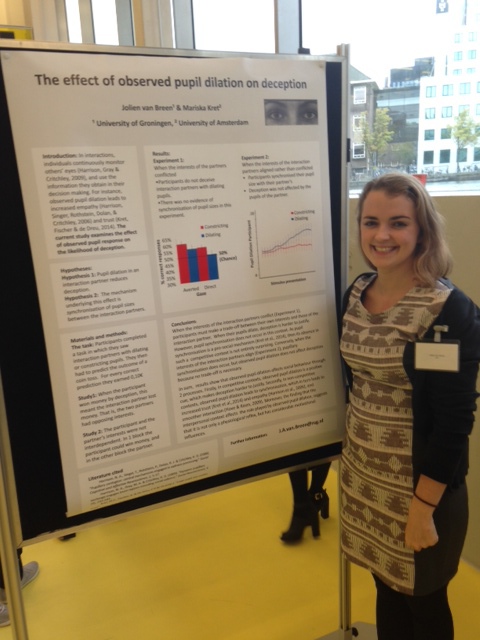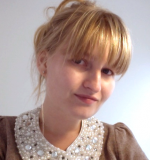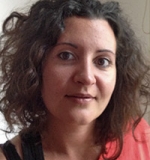Prof. dr. Richard Ridderinkhof is gekozen als lid van KNAW, een eer voorbehouden aan de meest vooraanstaande wetenschappers in hun vakgebied. Ridderinkhof doet onderzoek naar cognitieve controle en de neurale implementatie hiervan. NVP-leden zullen Richard vooral kennen als oud-voorzitter en zijn columns in de Psychonoom. De NVP feliciteert Richard met zijn verkiezing en wenst hem veel succes toe!
Category Archives: NVP Nieuws
In memoriam – Nico Frijda (1927 – 2015)
Nico H. Frijda (1927-2015)
Na vele actieve jaren als onderzoeker, mentor, en onderwijzer is Nico Frijda op 87-jarige leeftijd overleden. Nico Frijda was een van de beroemdste en meest geciteerde psychologen van Nederland en voor veel onderzoekers, zowel binnen als buiten de psychologie, een belangrijke inspiratiebron. Hij studeerde aan de afdeling Psychologie van de Universiteit van Amsterdam, waar hij ook promoveerde in 1956 op het proefschrift getiteld: Het begrijpen van gelaatsexpressies. Van 1965 tot 1992 was hij hoogleraar aan de UvA en was daarna nog 10 jaar lang bijzonder hoogleraar Emotietheorie, namens de stichting CERE (Consortium for European Research on Emotion).
Nico Frijda was een van de oprichters van de Nederlandse Vereniging voor Psychonomie. Op 23 oktober 2014 ontving hij van deze Vereniging de Erepenning voor zijn rol als inspirator en zijn bijdrage aan de Psychonomie in Nederland. Deze werd hem uitgereikt op een speciaal rondom hem georganiseerd symposium over Hot Cognition; de laudatio uitgesproken door Richard Ridderinkhof kunt u hier nalezen. Nico’s lezing op dit symposium zou zijn laatste publieke optreden blijken te zijn.
Nico Frijda was grondlegger van het emotieonderzoek en heeft een belangrijke functie gespeeld in de (inter)nationale ontwikkeling van dit vakgebied. Zijn boek The Emotions (1986) wordt door velen binnen en buiten het vakgebied beschouwd als een origineel en invloedrijk standaardwerk over emoties. Niet alleen via zijn eigen publicaties, maar ook door een initiërende rol te vervullen in het bijeen brengen van emotie-onderzoekers, zoals in het Instituut voor Emotie en Motivatie aan de UvA, en de International Society for Research on Emotions (ISRE). In 1986 stichtte hij een consortium waarin emotieonderzoekers uit de belangrijke emotielabs uit Europa verenigd waren.
Voor Nico Frijda was een emotie meer dan een fysiologische respons. Een van zijn belangrijke en originele stellingnames is dat emoties een verandering in actiebereidheid zijn. Het ging er volgens hem niet zo zeer om wat mensen voelen als een soort innerlijke mentale toestand, maar wat ze geneigd zijn te doen in reactie op een gebeurtenis of een persoon. Terwijl zijn belangstelling zich in eerste instantie concentreerde op gelaatsexpressies, werd deze gaandeweg breder en leidde tot publicaties over emotieregulatie en emotie-intensiteit, uitmondend in essays over de menselijke natuur (bv. The Laws of Emotion, 2006; Not Passions’s Slave, 2010).
Nico heeft ontelbare lezingen gegeven en wist zijn publiek altijd buitengewoon te boeien, niet alleen inhoudelijk maar ook door de onvergetelijke persoonlijke stijl, die bij een ieder voor altijd op het netvlies en trommelvlies gegraveerd zal staan. Nog tot op het laatst was Nico wetenschappelijk actief, samen met voormalig studenten, met vernieuwende en inspirerende bijdragen aan congressen en vaktijdschriften. Wij zullen hem enorm missen. Maar de herinneringen aan zijn inspirerende en markante persoonlijkheid zal blijven.
NVP POSTER AWARD won by Jolien van Breen
Jolien van Breen (University of Groningen) has won the NVP poster award 2014 for her research “The effect of observed pupil dilation on deception”.
About her research:
Following each other’s gaze and attending to pupil size allows humans to communicate information about the immediate environment. “Pupillary contagion” is the synchronization of pupil sizes with an interaction target. Interestingly, pupillary contagion has adaptive value, e.g., to promote shared understanding and coordination, because it emerges within, but not across species. This can be observed when humans synchronize their pupils specifically with other humans, but not with chimpanzees. Pupil synchronization is uniquely human, as it does not occur in our closest relative, the chimpanzee (P. troglodytes). In our studies on the effects of pupillary contagion on trust and deception, we demonstrated that pupillary contagion induced trust and reduced the likelihood of deception.
NVP POPULARISATION AWARD won by Claudia Pama and Roberta Sellaro
Claudia Pama (University of Cambridge) and Roberta Sellaro (Leiden University) have won the NVP popularization award 2014 in the category “VIDEO/BLOG” for their video “Reducing prejudice through brain stimulation”.
About their research:
More than fifty years have passed since the day Martin Luther King Jr. pronounced one of the most inspiring speeches of the Twentieth century. Nonetheless, today it is still quite hard to look at the outside world and think with confidence that the dream of the American clergyman will become more than a dream in the near future. In fact, everlasting ethnic, religious and cultural wars (just open any newspaper for examples), rash immigratory policies, everyday violence and implicit and explicit ghettoization demonstrate that social discrimination is still one of the leitmotifs of human history. We used a noninvasive brain stimulation technique, transcranial direct current stimulation (tDCS), to modulate implicit bias toward social discrimination. We found that stimulating the prefrontal cortex, brain area related to social discrimination, we were able to reduce negative implicit attitudes toward members of an out-group. So, our results imply that, as dreamed by Martin Luther King, it will be possible to reduce prejudice.
Claudia Pama
Roberta Sellaro
NVP POPULARISATION AWARD won by Marc Brysbaert
Prof Marc Brysbaert, Professor of Experimental Psychology at the University of Gent (Belgium), has won the NVP popularization award 2014 in the category “MULTIMEDIA” for his groundbreaking research “Het taalonderzoek” (http://www.npowetenschap.nl/
About his research:
We started our vocabulary research from the observation that some words rarely encountered in books and television programs, are generally known. This goes against the tenet that word frequency is the best variable to predict word knowledge and speed of processing. Apparently, some words are acquired very rapidly (probably after a single encounter) or can be processed on the basis of prior knowledge (e.g., in the case of low frequency derived words). To find out how well words are known, we set up a short vocabulary test that was fun to do. As it was important to have many responses from a wide audience, we were happy to collaborate with the media (television, radio, newspapers). In the end, more than 2% of the Dutch speaking population (i.e., more than 440,000 persons) took part in the test so far. Preliminary analyses indicate that the percentage of people of who know a word (a variable we call word prevalence) explains as much variability in word processing times as word frequency and, in addition, is largely complementary to word frequency. This will seriously enhance our understanding of word learning and word processing. At the same time, the outcome of our research is also a nice historical document of Dutch word knowledge at the beginning of the 21st century. The data are freely available on the web, but are now also available as a book (http://www.academiapress.be/woordenkennis-van-nederlanders-en-vlamingen-anno-2013.html), for those who love to leaf through pages.

EPOS Expert Workshop on Working Memory
We are pleased to announce the EPOS Expert Workshop on Working Memory, held 11 & 12 December 2014 in Amsterdam.
The workshop broad range of experts from within the EPOS network and from abroad (in no particular order):
Prof. Dr. Andrew Conway (Princeton University) Individual differences in working memory
Prof. Dr. Torkel Klingberg (Karolinska Institute) Training and plasticity of working memory
Prof. Dr. Klaus Oberauer (University of Zurich) Cognitive models of working memory
Dr. Nancy Carlisle (University of Leicester) EEG markers of visual memory
Dr. Lorenza Colzato (Leiden University) Pharmacological underpinnings of working memory and cognitive control
Prof. Dr. Pieter Roelfsema (Netherlands Institute of Neuroscience) Neurocomputational modelling of visual memory
Dr. Mariette Huizinga (VU University of Amsterdam) Development of working memory and executive control in children and young adults
Prof. Dr. Steve Majerus ( University of Liège) Working memory interactions with language and attention
Dr. Ilja Sligte (University of Birmingham) Different stages of visual working memory
The full line-up and programme can be found here.
The goal of EPOS expert workshops is to educate PhD students of the EPOS Research School on the latest developments in the field. The workshop features a wide range of conceptual topics, from visual memory to executive functioning, from individual differences to plasticity. But the meeting is no doubt also interesting to (and therefore open to) a wider audience, from students to seniors. Registration will be limited to about 75 people in total.
Registration is free for PhD students with an EPOS membership, and they will receive 1 ECTS.
Registration will be 250 euro for non-EPOS members. This will include the two-day programme, lunch and drinks (borrel).
Inquiry – Please indicate your interest
For practical purposes, at this stage we like to count the number of people who plan to attend the workshop. By indicating your interest you are not committing, registering or paying for anything. Please indicate your interest here.
Registration will open later, on www.eposgradnet.nl.
Looking forward to seeing you at this fantastic meeting,
The organizing team,
Chris Olivers
Anouk van Loon
Hot cognition: how emotions shape information processing
NVP Mini Symposium
23rd October 2014
University of Amsterdam
Influential theories have argued that affective processing is fundamentally different from cognitive processing. Where and on what basis should theorists draw the line between cognition and emotion, and when is it useful to do so? This symposium compiles different viewpoints on fundamental issues in the relationship between affect and cognition.
- If you want to attend the symposium, register here. Limited seats are available.
- Are you a Master or PhD student and do you want to give a poster presentation? Submit your abstract here before September 23d, 2014 and then also register via the link above. The best poster will be awarded with 100 euro!
- All attendants and presenters need to be members of NVP. If you want to become a member, register here.
Schedule:
13:00-13:15 Welcome and NVP research popularization award
13:15-14:00 Bruno Bocanegra
14:15-15:00 Agneta Fischer
15:00-15:45 Coffee break/Poster Presentation
15:45-16:30 Beatrice de Gelder
16:30-17:15 Nico Frijda
17:15-17:30 Concluding notes
17:30-18:00 Drinks and poster prize
Locatie: REC-M zaal 1.01/ Plantage Muidergracht 12, Amsterdam.
Organizing Committee: Lorenza Colzato and Mariska Kret
Abstracts
1. Bruno Bocanegra
A Kuhnian Perspective on the Emotion-Cognition Interface
In his seminal work “The Structure of Scientific Revolutions”, Kuhn developed a theoretical account of the mechanisms underlying scientific progress. This publication was a landmark event in the sociology of science and marked the beginning of social epistemology. In the present talk I will argue that the core mechanism proposed by Kuhn may not only be relevant for explaining scientific progress on a societal level, but may also explain the dynamics of emotion-cognition interactions within an individual. Although this proposal is too abstract to account for specific examples of emotion-cognition interactions, it may be useful for conceptualizing general properties of the overall interface between the two domains.
2. Agneta Fischer
How emotional faces influence information processing
Faces often send emotional signals and observers may automatically react with similar emotional expressions, referred to as emotional mimicry. Emotional mimicry has two major social functions: (1) it facilitates affiliation with others, and (2) it helps us understand how others feel. I will review evidence for these functions, but I will also show that both functions depend on the context in which the emotion is displayed and can be regulated in order to meet other than affiliative goals.
3. Bea de Gelder
After decades of sidestepping the body in favor of only investigating face perception, neuroscientists in this last decade have begun to investigate also body perception. Most studies have focused on how the visual system recognizes the body shape and whether there exists one, two or many brain areas dedicated to the representation of the human body. After a brief review of this research we will present current studies on the perception of the body as the medium of emotional expressions. We will argue that the affective, communicative and interactive dimensions of bodies suggest a different blueprint of the perceptual and neural underpinnings of bodies than what is provided by studies of how the body is represented. The contrast between these two perspectives can then be viewed as one between the body as presence vs. the body as an object of neural representation.
4. Nico H. Frijda
Whence emotions?
Terms like ”emotion” and its near equivalents in languages other than English (e.g. affectio, bhava, pathema, emocion, Gemütsbewegung) appear not to allow of a coherent and consistent definition. So far, no general agreement has been reached on them in the relevant literature.
It appears that words like those mentioned are designations of personal experiences and perceived behaviors of other individuals that strike the perceiver’s eye or ear as being out of the run of the mill experiences and behaviors.
These experiences and behaviors that strike the eye or ear appear to be the variable outcomes of variable sets of a finite number of basic processes that allow the organism’s abilities and sensitivities and that characterize healthy members of a given animal species, notably the human species.
NVP Popularisatie onderzoek prijs
NVP wil zich inzetten voor het bevorderen van betrokkenheid bij en toegankelijkheid van wetenschappelijke kennis en inzichten voor een breed publiek. De NVP popularisatie van onderzoek-prijs wordt uitgereikt aan een wetenschapper die lid is van NVP. Zij/hij krijgt de prijs voor de uitstekende bijdrage aan het vergroten van de kennis en betrokkenheid van een breed publiek bij de wetenschap in de afgelopen 2 jaar.
We denken hierbij aan: pers-/boekpublicatie: boek(en), serie(s) samenhangende artikelen in dag-/week-/maandbladen, brochures; multimediaproducties: documentaire(s), (serie) uitzendingen/internetsites, video (s), sociale media; dramaproducties, tentoonstellingen, en andere evenementen die de publieke belangstelling voor wetenschappelijk onderzoek bevorderen.
Aanvragen kunnen worden gezonden, niet later dan 23 September 2014, aan:
Dr. Lorenza Colzato
colzato@fsw.leidenuniv.nl
Nieuw bestuurslid
NVP verwelkomt nieuw bestuurslid Artem Belopolskiy
Genomineerden Dissertatieprijs
De genomineerden voor de NVP Dissertatieprijs 2013 zijn:
Peter Bos (UU)
Jelmer Borst (RUG)
Sebastiaan Mathot (VU)




